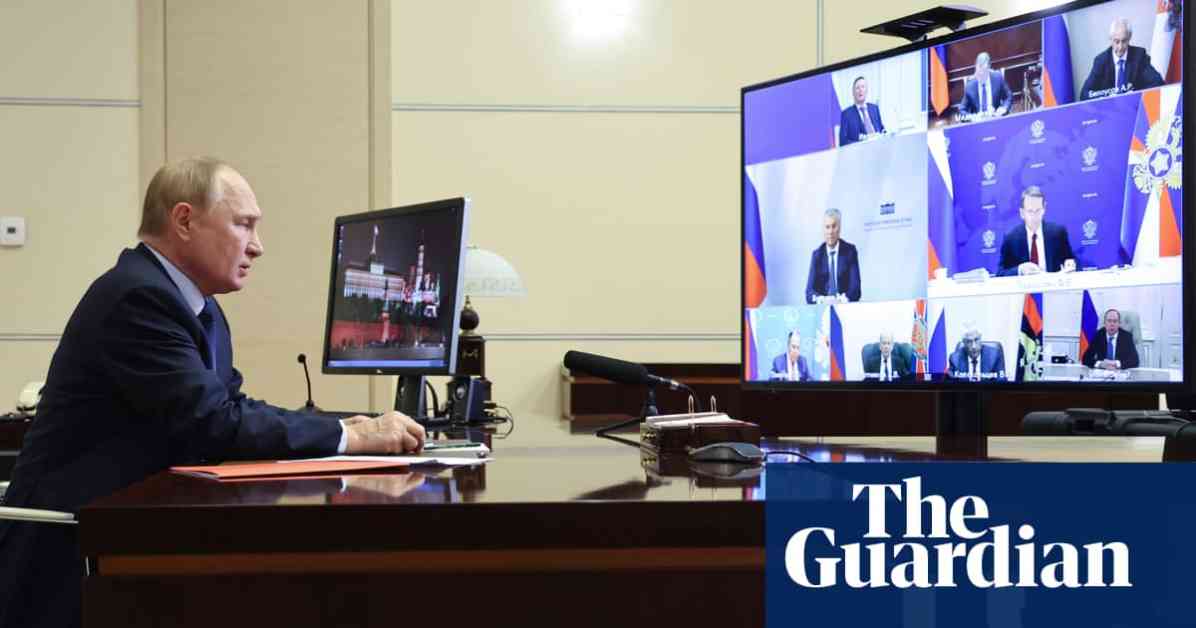US Leaders Push Back Against Putin’s Aggressive Rhetoric
US officials and lawmakers have strongly condemned Russian President Vladimir Putin’s recent statements regarding potential NATO actions in Ukraine. Putin warned that any loosening of restrictions on Ukraine’s ability to launch long-range strikes into Russia would be considered an act of war by NATO countries. This aggressive rhetoric has sparked a heated response from Washington, with leaders emphasizing their commitment to supporting Ukraine’s defense against Russian aggression.
Prime Minister Keir Starmer’s upcoming meeting with President Joe Biden at the White House is expected to address the potential relaxation of restrictions on Storm Shadow missiles, which would enable Ukraine to strike targets up to 155 miles inside Russia. While the US and European countries are considering this option, they are not planning to announce any policy changes at this time. The joint production of these missiles in the UK and France has raised concerns in Moscow, with Russian officials warning of dire consequences if these restrictions are lifted.
Senator Risch Calls for Ukraine’s Right to Defend Itself
Senator Jim Risch, the ranking member of the Senate foreign relations committee, has expressed support for Ukraine’s right to defend itself against Russian aggression. Risch argued that Ukraine should have authorization to strike targets deep inside Russia, including active Russian bombers launching missiles against Ukrainian cities. He dismissed Putin’s threats of direct confrontation with NATO as a tactic to intimidate Western countries from supporting Ukraine.
Risch emphasized the importance of allowing Ukraine to defend itself and take necessary measures to protect its citizens. He pointed to the potential impact of long-range strikes from Ukraine on Russia’s war effort and stressed the need for Ukraine to have the capability to respond to Russian aggression effectively. Risch’s stance reflects a broader sentiment in Washington that Ukraine should be empowered to defend its sovereignty and territorial integrity.
US Reaffirms Support for Ukraine Amid Rising Tensions
As tensions escalate between Russia and NATO over the conflict in Ukraine, the US and its allies have reiterated their commitment to standing behind Ukraine in its defense efforts. The White House press secretary, Karine Jean-Pierre, reaffirmed the administration’s dedication to providing Ukraine with the necessary support to protect itself against Russian aggression. This commitment extends to working closely with partners and allies to ensure Ukraine has the resources it needs to confront external threats effectively.
The ongoing discussions between Washington and its allies underscore the significance of maintaining a united front in support of Ukraine. The upcoming meeting between President Biden and Prime Minister Starmer is expected to address various foreign policy issues, including the situation in Ukraine and the broader geopolitical landscape. The US remains focused on bolstering Ukraine’s defense capabilities and deterring further Russian aggression in the region.
Zelenskiy’s “Victory Plan” and US Presidential Elections
Ukrainian President Volodymyr Zelenskiy is set to present his “victory plan” to President Biden on the sidelines of the UN General Assembly later this month. The plan outlines Ukraine’s strategy for achieving success in the ongoing conflict with Russia and securing its sovereignty. The meeting between Zelenskiy and Biden comes at a critical juncture as pressure mounts on Ukraine amid the upcoming US presidential elections.
The potential return of former President Donald Trump to power has raised concerns about the future of US-Ukraine relations and the broader implications for the conflict in the region. As Ukraine navigates the complex geopolitical landscape, it seeks continued support from its allies to defend against external threats and uphold its territorial integrity. The outcome of the US elections could have significant implications for the dynamics of the conflict and the level of support Ukraine receives from the international community.
In conclusion, the ongoing tensions between Russia and NATO over Ukraine highlight the complex dynamics at play in the region. US leaders are pushing back against Putin’s aggressive rhetoric and reaffirming their commitment to supporting Ukraine in its defense efforts. The upcoming meetings between key leaders and the presentation of Zelenskiy’s “victory plan” underscore the importance of international cooperation in addressing the crisis in Ukraine. As the situation continues to evolve, it is crucial for the US and its allies to stand united in support of Ukraine’s sovereignty and security.












